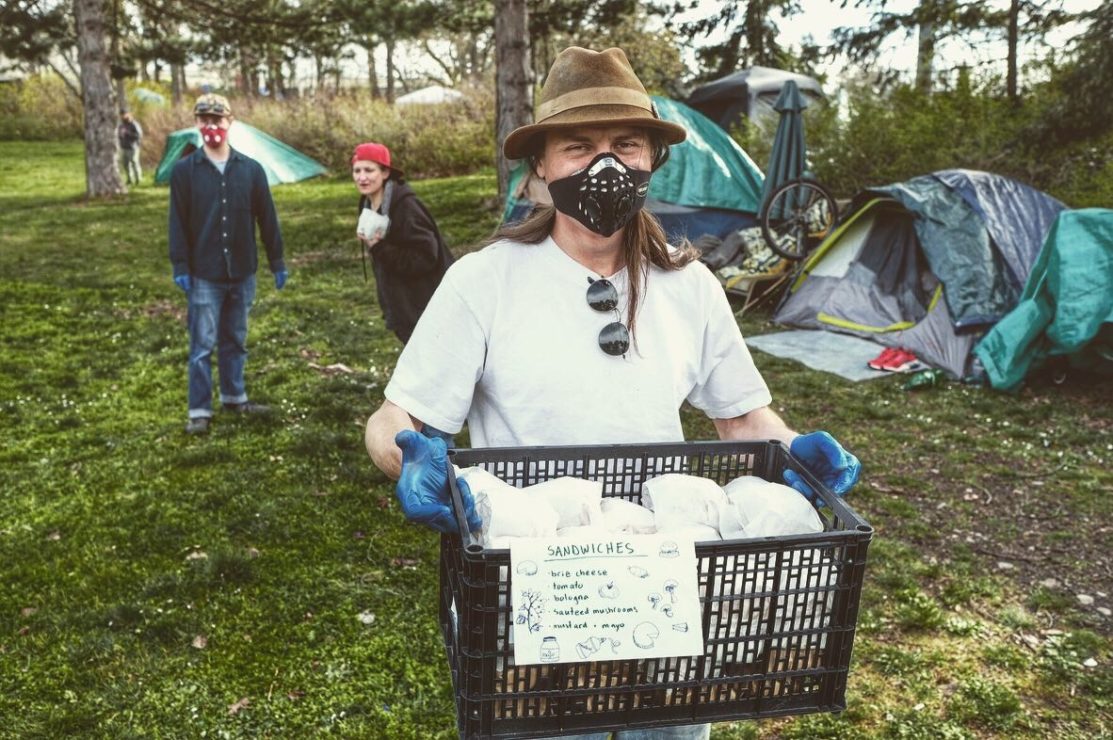Municipal, community responses aim to address systemic gaps in food security in Victoria

The economic impact of COVID-19 has put university students at an increased risk of food insecurity due to rising tuition costs, rent, and often fluctuating levels of income. At UBC, some students are facing the choice between paying rent and paying a grocery bill.
The UVSS Food Bank has been closed since March 13. In a statement posted following their closure, the UVSS Food Bank announced that the closure was a proactive measure against the spread of COVID-19. Following this, they donated $5 000 of their budget to the Mustard Seed and directed users to downtown resources.
Increased difficulties due to regulations and a sharp drop in food donations are causing food banks to scale back their operations. Marginalized and at-risk members of the community are feeling squeezed as the support systems and the food distribution systems themselves buckle under the pressure of the pandemic. As the pandemic sets in, the risk of widespread food insecurity increases.
Growing solutions
Victoria city councillor Jeremy Loveday is working on the problem.
“The current COVID-19 crisis has brought this further into focus,” said Loveday. “Students are one of the groups that have been hit hard by this current crisis, and a lot of students face food insecurity.”
Victoria is now deploying city workers to grow food, for the first time since the Great Depression and World War II. Victoria’s food initiative, Growing in the City was scaled up on April 2. Using the city’s current budget and staff, the Beacon Hill Park nurseries have been diverted to planting and growing as many as 75 000 plant seedlings, which will then be distributed to Victorians after they have been grown.
This shift, Loveday says, is one that’s years in the making. The proposal to the city council was written in close consultation with regional food advisory group Urban Food Table co-chair, Aaren Topley.
Victoria Food Systems Coordinator Alex Harned will be implementing the first stage of this project, which involves reaching out and preparing a distribution network to organizations and individuals with seedlings and education materials — including people who are facing food insecurity — while the seedlings are being grown.
Loveday says he is currently unaware of any plans to partner with the university’s campus community garden. As the project is funded by City of Victoria taxpayers, only students who live within the municipality are eligible to receive these food plants. For students, the city is looking to partner through School District 61, though Loveday says he welcomes any opportunity to partnering and working with university students living in Victoria.
Less than nine kilometres away from Victoria City Hall in the neighboring municipality of Saanich, UVic’s Campus Community Garden is thinking of how to distribute its upcoming harvest to community members in need. For now, it has restricted its growing grounds to staff and plot renters.
An unorthodox approach
Photojournalist and UVic environmental studies alumnus Mike Graeme and his roommates have taken matters into their own (sanitized) hands.
For a while, Graeme has wanted to do something to direct the abundance of food deemed as food waste in the city to vulnerable communities. For Graeme and his roommates, foraging for food that’s slipped through the distribution system makes up a substantial part of their diet.
“Almost every time that we go out and try to divert food from the waste stream, we come across enough to feed like, I don’t know, 10 people for a week,” said Graeme.
With vital donation chains severed in the face of the pandemic, Graeme was finding even more food thrown out. With the help of his roommates, Graeme was able to give away two crates of hand-made sandwiches made with ingredients diverted from the waste stream to Topaz Park residents, which in recent days has become a designated shelter area for the street community in Victoria. The houseless community are among those most hard hit by the pandemic.
“Some people that we served hadn’t [eaten] in multiple days, so I think that first and foremost, they needed food,” said Graeme.
During his degree, Graeme was a committed volunteer with Community Cabbage, a UVic initiative that serves free meals cooked with diverted food waste on campus with the goals of redistributing food, increasing food literacy and building community around food.
The Martlet has covered the longstanding tradition of dumpster diving and food security advocacy that happens at UVic. Now there may be another reason to divert from the waste stream: at least one person Graeme met while diving recently said that they had returned to dumpster diving as a way to practice social distancing and avoid the potential viral danger of a crowded grocery store.







